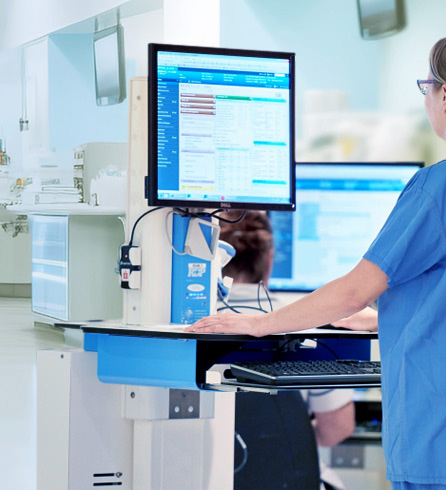In the medical industry, batteries play a crucial role in ensuring the reliable and uninterrupted operation of various medical equipment. From portable diagnostic devices to life-supporting equipment, the demand for efficient and dependable power sources is ever-growing. The development trends in medical batteries are moving towards higher energy densities, longer life cycles, and enhanced safety features to meet the stringent requirements of the healthcare sector. Advancements in battery technology are enabling the miniaturization of medical devices, improved portability, and enhanced patient comfort.
1. Safety Factors Considered for Medical Batteries
Safety is paramount when selecting batteries for medical equipment. The following safety factors should be considered:
Thermal Management: Batteries must be able to dissipate heat efficiently to prevent overheating, which can lead to thermal runaway and potential device failure.
Overcharge and Over-discharge Protection: Integrated circuitry should prevent overcharging and over-discharging to avoid damaging the battery and ensure patient safety.
Short Circuit Protection:Batteries should have mechanisms to prevent short circuits, which can cause overheating, fires, or explosions.
Leakage Resistance:Batteries should be sealed to prevent leakage of electrolytes, which can damage the device and pose safety risks to patients.
Medical-grade Materials:Use of non-toxic, biocompatible materials to ensure patient safety, especially for implantable devices.
2. Standards and Certifications for Selecting Medical Batteries
Selecting batteries that comply with relevant standards and certifications ensures safety, reliability, and performance. Key standards and certifications include:
ISO 13485: Specifies requirements for a quality management system for the design and manufacture of medical devices.
IEC 62133:Governs the safety requirements for secondary cells and batteries containing alkaline or other non-acid electrolytes.
UL 2054:Standard for Household and Commercial Batteries, applicable to medical devices.
RoHS (Restriction of Hazardous Substances):Ensures batteries are free from certain hazardous substances, promoting environmental safety.
UN 38.3:Regulates the safe transportation of lithium batteries, ensuring they can withstand various stress conditions.

3. Tips for Selecting Medical Batteries
When selecting batteries for medical equipment, consider the following tips:
Match Battery Specifications to Device Requirements:Ensure the battery's voltage, capacity, and size match the device's specifications.
Evaluate Battery Life and Longevity:Choose batteries with a high cycle life and long shelf life to reduce the frequency of replacements.
Consider Operating Environment:Select batteries that perform well within the device’s operating temperature range.
Check Manufacturer Reputation:Opt for batteries from reputable manufacturers with proven reliability in the medical field.
Assess Total Cost of Ownership:Factor in the long-term costs, including maintenance and replacement, rather than just the initial cost.
4. Types of Batteries Generally Used for Medical Equipment and Their Advantages
Several types of batteries are commonly used in medical equipment, each with its own advantages and benefits:
Lithium-Ion (Li-ion) Batteries:
Advantages:High energy density, lightweight, long cycle life, and low self-discharge rate.
Benefits:Ideal for portable medical devices such as infusion pumps, portable oxygen concentrators, and defibrillators due to their lightweight and long-lasting power.
Nickel-Metal Hydride (NiMH) Batteries:
Advantages:Environmentally friendly, higher capacity compared to NiCd, and no memory effect.
Benefits:Suitable for moderate energy needs and devices requiring frequent recharging, like diagnostic imaging equipment.
Alkaline Batteries:
Advantages:Widely available, inexpensive, and long shelf life.
Benefits:Commonly used for low-drain devices like remote controls for medical equipment and certain types of thermometers.
Advantages:Reliable, robust, and capable of delivering high power.
Benefits:Often used in larger medical devices and backup power systems due to their durability and ability to provide consistent power.
As a leading producer of batteries in China,Superpack possesses technologies and experiences to provide fully-integrated products & solutions for lithium-ion based green energy applications, including Medical Device, E-mobility, Energy Storage System, Defence & Security, Industrial Electronics and many other more applications.